A neonatal psychology programme has been launched with the aim of supporting better outcomes for babies, families and staff on neonatal units. We spoke to Dr Rebecca Chilvers and Dr Ruth Butterworth from NeoLeaP (Neonatal Leads for Psychological Practice) in England to find out more about the new training.
The importance of considering the psychological impact of the neonatal unit has been highlighted in recent years within a number of reports, including the Ockenden report, the Kirkup report and the new three-year plan for joint working across maternity and neonatal settings.
As a result of these findings, a new e-learning programme has been developed by NHS England in partnership with NeoLeaP, the Association of Clinical Psychologists (ACP-UK), and neonatal networks. The programme, the first of its kind, has been written by group of Consultant Clinical Psychologists who have worked with Experts by Experience and other psychological professionals working in the neonatal field. It aims to equip everyone working on a neonatal unit with foundational skills and knowledge to support the psychological needs of babies, families and each other within a framework of Psychologically Informed Neonatal Care (PINC).
There are four modules in the programme, each of which takes approximately 30 minutes to complete. These modules include:
- Psychologically-Informed Neonatal Care (PINC): This module outlines a framework that helps staff understand the psychological impact on everyone within the neonatal system, and what part everyone can play in providing psychologically-informed care.
- Infant wellbeing on the neonatal unit: This module explores in detail the impact of the neonatal experience on the baby, including guidance on buffering the effects of stress and supporting the parent-infant relationship.
- Family wellbeing on the neonatal unit: The third module takes an in-depth look at the impact of a neonatal admission on parents, including guidance on identifying and addressing parent needs, and how to talk to parents during a distressing time.
- Staff wellbeing on the neonatal unit: This module explores the impact that working in neonatal care can have on staff, including the potential consequences of continuous exposure to stress and the approaches ways that staff can take care of themselves and each other.
The programme has been designed to provide practical guidance that can be easily implemented into the daily schedules of neonatal staff, enabling them to manage their own wellbeing and the wellbeing of those around them. It has been developed to be used by everyone who works within a neonatal setting, including those working within the community (such as GPs and health visitors) as well as the wider workforce supporting babies and their families in the long term.
The e-learning also hopes to provide leaders with the tools they need to support their team to complete the modules, as well as to consider how their learning can be integrated into their practice. This could include group learning, discussion and reflective practice, or any creative method that may work best for your team. Commenting on the implementation of the learning, Dr Angela Marsh ( NeoLeaP) added:
“In our experience as psychological professionals we have seen how giving people the language and frameworks to make sense of their experiences can be a light bulb moment. The understanding and empathy that follows, gives them the clarity and motivation to help themselves, their patients, their teams and systems they work in.”
“We hope that staff undertaking this training, no matter their contribution to the baby and family’s journey, will feel empowered to use their skills to deliver neonatal care and support each other in a psychologically informed way.”
The team have already received positive feedback from neonatal staff who have had the opportunity to experience the e-learning firsthand.
“The neonatal psychology module is a fantastic training resource for all neonatal staff. It explains key psychological models in a clear, engaging, and accessible way.”
Principal Neonatal Psychologist, Derbyshire
“The neonatal e-learning is fabulous. I really valued the stop and think questions in the first module encouraging you to think in depth about how this relates to your practice, unit and knowledge. I also liked the explanation of the overlap between the different AHP and psychological professionals which was clear, and the module was a good length that would easily fit around the commitments of a clinical caseload”.
Physiotherapy Lead for the EOE Neonatal ODN
To find out more about the e-learning, please visit https://www.e-lfh.org.uk/programmes/psychologically-informed-neonatal-care/
Dr Rebecca Chilvers and colleague Dr Ruth Butterworth will be facilitating the learning and workshops at our managers and matrons event on 15th January. The event is now sold out, but please add your name to the waiting list to be the first to hear should the event be repeated in the future.


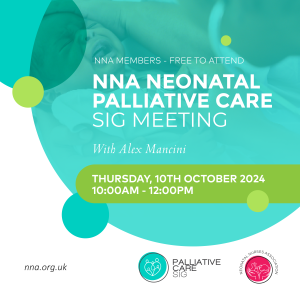

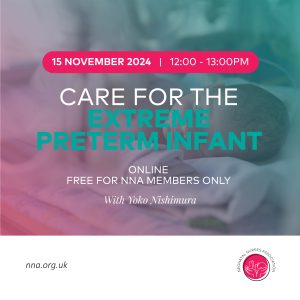
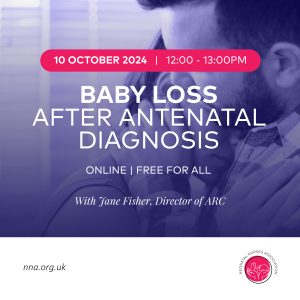
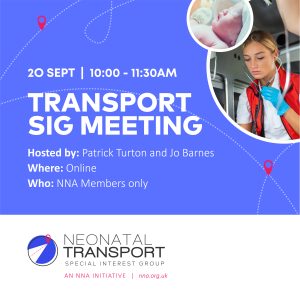
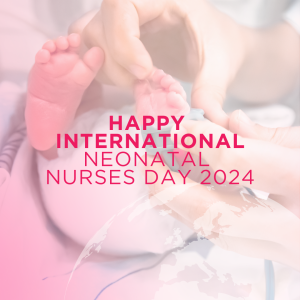
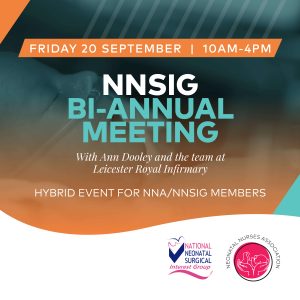
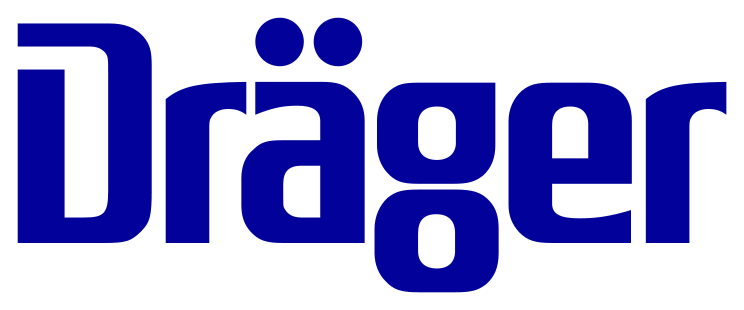
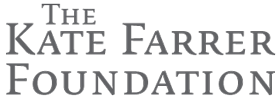

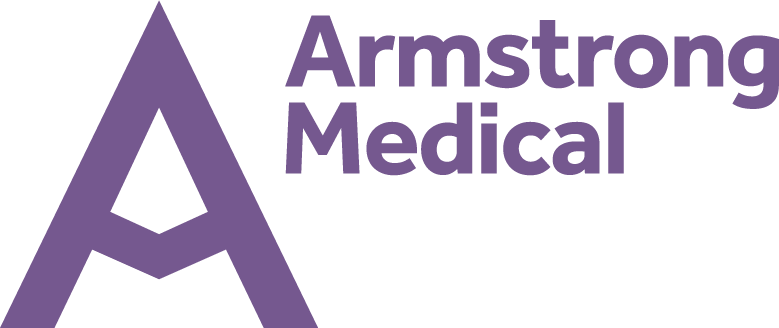


 My name is Dr. Julia Petty, and I am a nurse lecturer specialising in children’s nursing with a particular interest in neonatal care. My nursing career in paediatric and neonatal clinical nursing practice began after a BSc Hons degree in Psychology at Warwick University, when I moved to Great Ormond Street Hospital, London. Here, I trained in children’s and adult nursing before working there for many years in children’s and neonatal surgical care. I then gained my neonatal nursing qualification at St George’s NHS Trust London and worked at the Whittington NHS Trust NICU before moving back to Great Ormond Street for a senior education role on NICU where I worked until 2001. I then worked as Senior Lecturer at City University, London for 12 years leading the neonatal nursing education portfolio. I studied for a MSc, a PGCE and MA in academic practice during this time, In 2013, I moved to the University of Hertfordshire where my role is Associate Professor (learning and teaching) and Senior lecturer child nursing. I teach on the BSc Hons nursing and master’s degree programmes including leadership of modules, face-to-face/online teaching, assessing and supervision of students at all levels up to doctorate level. I am also research active and have completed a Doctorate in Education. As a nurse, educator and post-doctorate researcher, my interests focus on parents’ premature birth experiences, supporting parents in the transition home from NICU, exploring communication needs of neonates and their carers and studying the educational value of digital storytelling. This combination and variety of roles enriches my working life and brings together my experience as a child / neonatal nurse, educator and researcher. My role and related activities enable me to engage in both education and research while supporting students on their nursing career and education pathway, which is a privilege to be part of.
My name is Dr. Julia Petty, and I am a nurse lecturer specialising in children’s nursing with a particular interest in neonatal care. My nursing career in paediatric and neonatal clinical nursing practice began after a BSc Hons degree in Psychology at Warwick University, when I moved to Great Ormond Street Hospital, London. Here, I trained in children’s and adult nursing before working there for many years in children’s and neonatal surgical care. I then gained my neonatal nursing qualification at St George’s NHS Trust London and worked at the Whittington NHS Trust NICU before moving back to Great Ormond Street for a senior education role on NICU where I worked until 2001. I then worked as Senior Lecturer at City University, London for 12 years leading the neonatal nursing education portfolio. I studied for a MSc, a PGCE and MA in academic practice during this time, In 2013, I moved to the University of Hertfordshire where my role is Associate Professor (learning and teaching) and Senior lecturer child nursing. I teach on the BSc Hons nursing and master’s degree programmes including leadership of modules, face-to-face/online teaching, assessing and supervision of students at all levels up to doctorate level. I am also research active and have completed a Doctorate in Education. As a nurse, educator and post-doctorate researcher, my interests focus on parents’ premature birth experiences, supporting parents in the transition home from NICU, exploring communication needs of neonates and their carers and studying the educational value of digital storytelling. This combination and variety of roles enriches my working life and brings together my experience as a child / neonatal nurse, educator and researcher. My role and related activities enable me to engage in both education and research while supporting students on their nursing career and education pathway, which is a privilege to be part of.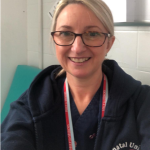 Hello my name is Claire Richards and I’m the Lead Nurse for the Wales Maternity and Neonatal Strategic Network. This covers nursing leadership but also Neonatal transport. I also have a clinical honorary contract in one Health Board.
Hello my name is Claire Richards and I’m the Lead Nurse for the Wales Maternity and Neonatal Strategic Network. This covers nursing leadership but also Neonatal transport. I also have a clinical honorary contract in one Health Board. Hello, my name is Kim Edwards, and I am a Neonatal Nurse. I am currently the Lead Nurse and Workforce, Education Lead for the Thames Valley and Wessex Neonatal Operational Delivery Network (ODN)
Hello, my name is Kim Edwards, and I am a Neonatal Nurse. I am currently the Lead Nurse and Workforce, Education Lead for the Thames Valley and Wessex Neonatal Operational Delivery Network (ODN)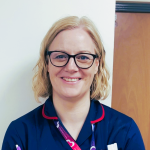
 Hello, my name is Jean and I am a registered children’s nurse with 27 years experience. I qualified with a DipHE after struggling academically due to dyslexia. Over my career I have worked mainly in PICU, NICU and children’s cardiac critical care. I am dual qualified in speciality (QIS) for both Neonatal and Paediatrics. The QIS program is a post graduate modular course completed at level 6/7. To be considered QIS you must successfully complete 4 separate modules, each have an academic and practical component. Only on completion of the QIS course can you apply for a band 6 role. In addition to the above qualifications it is expected you would have several years proven experience in speciality at Band 6 and 7 prior to applying for a Matron’s role.
Hello, my name is Jean and I am a registered children’s nurse with 27 years experience. I qualified with a DipHE after struggling academically due to dyslexia. Over my career I have worked mainly in PICU, NICU and children’s cardiac critical care. I am dual qualified in speciality (QIS) for both Neonatal and Paediatrics. The QIS program is a post graduate modular course completed at level 6/7. To be considered QIS you must successfully complete 4 separate modules, each have an academic and practical component. Only on completion of the QIS course can you apply for a band 6 role. In addition to the above qualifications it is expected you would have several years proven experience in speciality at Band 6 and 7 prior to applying for a Matron’s role.